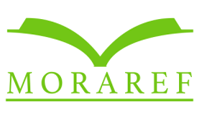ISLAMIC SELF-AFFIRMATION PARADIGM: A RESPONSE TO THE SOCIAL CHALLENGES OF MODERN MEDIA
 Abstract views: 362
,
Abstract views: 362
,
 PDF downloads: 134
PDF downloads: 134
Abstract
In the midst of modernity and globalization, Muslim individuals face various social challenges that can trigger identity crises and self-confidence issues. Self-affirmation according to the Islamic paradigm can be a solution to overcome these challenges. This research aims to analyze the Islamic paradigm of self-affirmation as a response to social challenges. The research method used is qualitative with literature studies, sourced from the Quran, Hadith, and the works of Islamic scholars. The results of the research show that the Islamic paradigm of self-affirmation emphasizes the strengthening of Islamic beliefs and values within individuals. Self-affirmation is carried out by strengthening faith and piety to Allah SWT, recognizing one's potential as a noble creature of Allah, emulating the Prophet Muhammad SAW and his companions, living life according to Islamic law, and being optimistic and never giving up. In conclusion, the Islamic paradigm of self-affirmation not only enhances self-confidence but also encourages individuals to become better and more beneficial members of society.
Downloads
References
A.Rafiq. “Dampak Media Sosial Terhadap Perubahan Sosial Suatu Masyarakat.” Global Komunika 1, no. 1 (2020): 18–29.
Adawiyah, Dwi Putri Robiatul. “Pengaruh Penggunaan Aplikasi TikTok Terhadap Kepercayaan Diri Remaja Di Kabupaten Sampang.” Jurnal Komunikasi 14, no. 2 (2020): 135–148.
Ahmad, Amar, and Nurhidaya. “Media Sosial Dan Tantangan Masa Depan Generasi Milenial.” Avant Garde 8, no. 2 (2020): 134–148.
Awang, Jellyan Alviani, Iky S. P. Prayitno, and Jacob Daan Engel. “Strategi Pendidikan Agama Kristen Bagi Remaja Dalam Membentuk Konsep Diri Guna Menghadapi Krisis Identitas Akibat Penggunaan Media Sosial.” KHARISMATA: Jurnal Teologi Pantekosta 4, no. 1 (2021): 98–114.
Fajriani, Suci Wahyu, and Yogi Suprayogi Sugandi. “Hijrah Islami Milenial Berdasarkan Paradigma Berorientasi Identitas.” Sosioglobal : Jurnal Pemikiran dan Penelitian Sosiologi 3, no. 2 (2019): 76–88.
Fatahya, and Fitri Ariyanti Abidin. “Literasi Kesehatan Mental Dan Status Kesehatan Mental Dewasa Awal Penggunaan Media Sosial.” HIGEIA (Journal of Public Health Research and Development) 6, no. 2 (2022): 165–175.
Hasanah, Uswatun, Anang Anas Azhar, and Syahrul Abidi. “Analisis Isi Video Channel Youtube Satu Persen (Studi Kasus Media Berdampak Pada Kesehatan Mental).” At-Tazakki: Jurnal Kajian Ilmu Pendidikan Islam dan Humaniora 7, no. 1 (2023): 74–89.
Khairuni, Nisa. “Dampak Positif Dan Negatif Sosial Media Terhadap Pendidikan Akhlak Anak (Studi Kasus Di SMP Negeri 2 Kelas VIII Banda Aceh).” JURNAL EDUKASI: Jurnal Bimbingan Konseling 2, no. 1 (2016): 91–106.
Khattab, Mona. “Synching and Performing : Body (Re) - Presentation in the Short Video App TikTok.” WiderScreen 21, no. 21 (2019): 1–16.
Mustofa, Ahmad, and Yusuf Arisandi. “Konsep Percaya Diri Perspektif Al-Qur’an.” Al-Jadwa: Jurnal Studi Islam 1, no. 1 (2021): 22–43.
Pratiwi, Anak Agung Manik. “Peran Media Sosial Dalam Meningkatkan Penjualan Online Saat Pandemi Covid-19.” Jurnal Ilmiah Satyagraha 3, no. 2 (2020): 73–81.
R, Mantasiah, Yusri, Abdullah Sinring, and Farida Aryani. “Assessing Verbal Positive Reinforcement of Teachers during School from Home in the COVID-19 Pandemic.” International Journal of Instruction 14, no. 2 (2021): 1037–1050.
Regita, Egi, Nabilah Luthfiyyah, and Nur Riswandy Marsuki. “Pengaruh Media Sosial Terhadap Persepsi Diri Dan Pembentukan Identitas Remaja Di Indonesia.” Jurnal Kajian dan Penelitian Umum 2, no. 1 (2024): 46–52.
Sa’diyah, Maemunah, Naskiyah Naskiyah, and Abdu Rahmat Rosyadi. “Hubungan Intensitas Penggunaan Media Sosial Dengan Kesehatan Mental Mahasiswa Dalam Pendidikan Agama Islam.” Edukasi Islami: Jurnal Pendidikan Islam 11, no. 03 (2022): 713–730.
Wahiddah, Siti Annisaa Nur. “Afirmasi Positif: Booster Untuk Meminimalisir Hambatan Belajar Pada Siswa Sekolah Dasar.” Universitas Pendidikan Indonesia, 2023.
El Widad, Zuha, and Khoirotul Idawati. “Afirmasi Positif Dalam Meningkatkan Self Efficacy Di MA Al-Qur’an La Raiba Hanifida Bandung Diwek Jombang.” Urwatul Wutsqo: Jurnal Studi Kependidikan dan Keislaman 12, no. 1 (2023): 93–111.
Zein, Putri Rahmadani. “Ethics of Using Social Media with Principle Islamic Communication.” INFOKUM 10, no. 5 (2022).
Copyright (c) 2025 NUANSA: Jurnal Penelitian Ilmu Sosial dan Keagamaan Islam

This work is licensed under a Creative Commons Attribution-NonCommercial 4.0 International License.
The journal operates an Open Access policy under a Creative Commons Attribution-NonCommercial 4.0 International License (CC-BY-NC) 
Authors who publish with this journal agree to the following terms:
- Authors retain copyright and grant the journal right of first publication with the work simultaneously licensed under a Creative Commons Attribution License that allows others to share the work with an acknowledgement of the work's authorship and initial publication in this journal.
- Authors are able to enter into separate, additional contractual arrangements for the non-exclusive distribution of the journal's published version of the work (e.g., post it to an institutional repository or publish it in a book), with an acknowledgement of its initial publication in this journal.
- Authors are permitted and encouraged to post their work online (e.g., in institutional repositories or on their website) prior to and during the submission process, as it can lead to productive exchanges, as well as earlier and greater citation of published work.




















